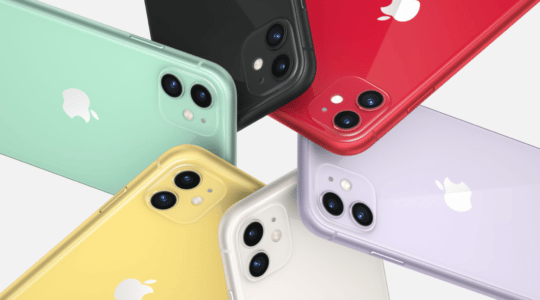We’re back with a new episode of App Developer Conversations, except App Developer Conversations is now App Marketing Conversations! We’ve been focused on the marketing and business side of the app ecosystem for a while now, and it felt like a name change would best reflect this.
This week we talked in depth about what competitive intelligence looks like in the app ecosystem. Competitive intelligence is an incredibly valuable way for app marketers to learn about their landscape, find new channels, and understand their current and potential users.
As always, Robi from Apptentive and Ryan from Gamehouse participated. Enjoy!
Transcription
Ian: Welcome, everybody, to another installment of App Marketing Conversations. As always, I’m Ian Sefferman of MobileDevHQ, Ryan Morel and Robi Ganguly of Apptentive.
Ryan: Morning. I’m not of Apptentive.
Ian: You’re not at Apptentive. Where are you?
Ryan: I’m at GameHouse. I would like a shirt though.
Robi: Okay. We can make it happen.
Ryan: Are you looking at me to see if I can fit him in one or something?
Robi: I was trying to figure out if you were a large or a medium.
Ian: You’ve got the red going on.
Ryan: It’s very complimentary.
Ian: We could just put a sticker.
Robi: [inaudible 00:37] give you a sticker.
Ian: So, today, we’re going to talk a little bit about App Store Competitive Intelligence 101 and, in particular why should you do competitive intelligence if you’re an app marketer. The first question is, what can you learn at a super high level from competitive intelligence?
Robi: Coming from where I sit, a lot of customers are focused on the customer satisfaction aspect of things. They look at other people’s apps in the App Store. They look at their ratings, their reviews and they learn a couple things, like, how satisfied are their existing customers? Is there an opportunity to go get dissatisfied customers? Is it very large? What are the things that seem to be the key feature capabilities that really resonate with people? Then, overall, in general, it’s this sort of “heat”
around it? How much do people care? That’s someplace where I think there’s a lot of competitive intelligence, just in the App Store itself.
Ian: I think the App Store itself provides more opportunity for competitive intelligence than the web ever did, right, directly from the customer themselves in a way that was previously unavailable. You can actually see what people are talking about, what they like, what they don’t like. Super fascinating.
Ryan: Yeah, well, and until recently, the challenge was, you could only see it as a one-way communication channel. Now all of a sudden, with what you guys do you can actually have some two-way communication. This kind of brings back an old conversation we had about Google enabling developers to go back and forth with consumers. I haven’t heard anything about that since then, so maybe that didn’t go anywhere. But, yeah, it’s unique compared to the rest of the market.
Ian: So, you have a bunch of data in there from customers about what they like, what they dislike about your different competitors, how can you start to think about how to take what’s written in there, and use it towards things like product planning and so on?
Ryan: From my perspective, I’m not sure what you mean by “written in there”. I look at the competitive intelligence from a product planning perspective of identifying where are the gaps, and in terms of what does the market want and whats being provided? Where can you find some amount, if not a lot, of demand in an under-utilized segment.
That’s how I would do it. To use an egregious example, it would be like,
“Hey, I really want to do an arcade game.” So you go look in the arcade section and you find Angry Birds, Doodle Jump, Cut the Rope, and maybe that’s not a good idea.” That’s like really basic level of competitive intelligence.
Then, you might go into family, or casino is an example of another competitive group. You could find some holes [inaudible 03:33].
Robi: That makes sense. I think you could also, again, just coming back to this notion of figuring out what’s core, like what do you have to do? So if you’re starting from zero, then, if you already have an app out there and thinking about where you need to go next. How do you prioritize that, the next piece of your road map, based upon what other people are doing well. Again, you could do analysis around, we’re kind of similar here, and here’s a big gap and they seem to be going one way.
There’s casino games, but there are certain genres. Maybe there’s this other genre or there’s this gap in functionality, or it’s something like that.
Ian: Yeah, in our product, we prefer the enterprise, now we actually have a competitive intelligence tool that helps you do a lot of this stuff. One of the things that we do is we will breakdown reviews over time. You can match a bunch of reviews up to a release. Then, it will actually break it down by rating of the reviews, so five star, four star, three star, two star, one star.
Then do natural language processing on that to give you, these are the things that most five star reviews talk about for this app. These are the things that most one star reviews talk about for this app. When you have direct competitors, it’s actually really interesting, because you can start to see things like, when somebody is a one star and they’re like, “I want X.” Like, “Oh, that’s an interesting feature for me to think about.” Or, “I hate Y.” It’s like, “Oh, this is an interesting feature for me to not do,”
or, to think about how to do in a way that is going to make them happier.
Ryan: That’s really cool. Or, the interesting thing you could do is start that sort of intelligence start dictating your marketing efforts as well. If you find that, hey, all these five star reviews say, “I love feature X,”
well, guess what? There’s your next marketing campaign. Or, “I hate feature Y.” That sort of intelligence lets you not only how to plan for your product, but also how you’re going to go about marketing around that.
Ian: I think that puts us…that’s a good 101 overview of why you want to do competitive intelligence. At the highest level, competitive intelligence gives you a framework to work with inside the App Store around product planning, marketing, strategy, at a super high level gives you a really great framework to work with. Maybe in the next couple weeks we can talk more in depth about each particular spot.
Robi: Sounds good.
Ian: Cool. Thanks, everybody. Make sure to like this video on YouTube, subscribe to our channel, and leave any comments if you have any questions. And, watch the other videos, of course.
Author
Becky is the Senior Content Marketing Manager at TUNE. Before TUNE, she handled content strategy and marketing communications at several tech startups in the Bay Area. Becky received her bachelor's degree in English from Wake Forest University. After a decade in San Francisco and Seattle, she has returned home to Charleston, SC, where you can find her strolling through Hampton Park with her pup and enjoying the simple things between adventures with friends and family.




Leave a Reply
You must be logged in to post a comment.